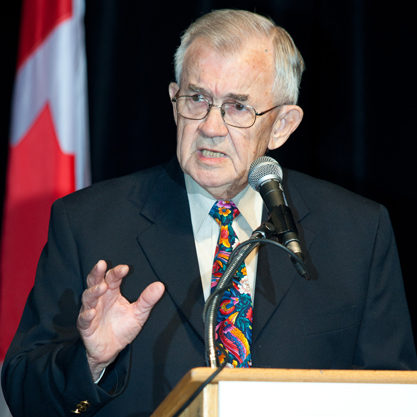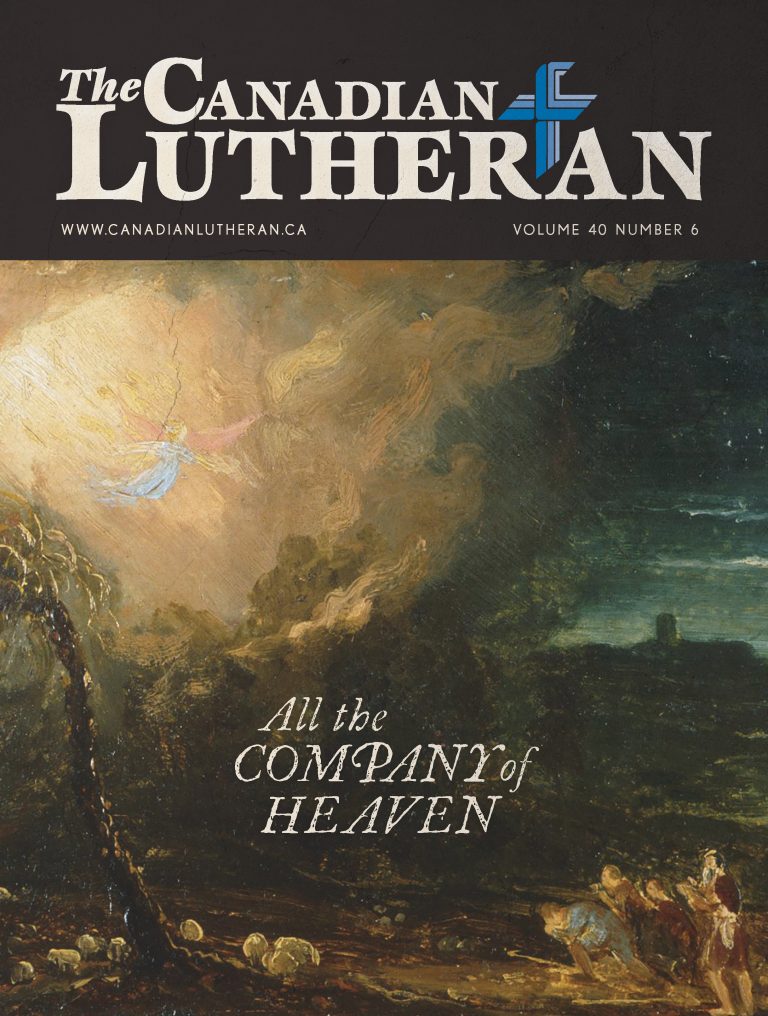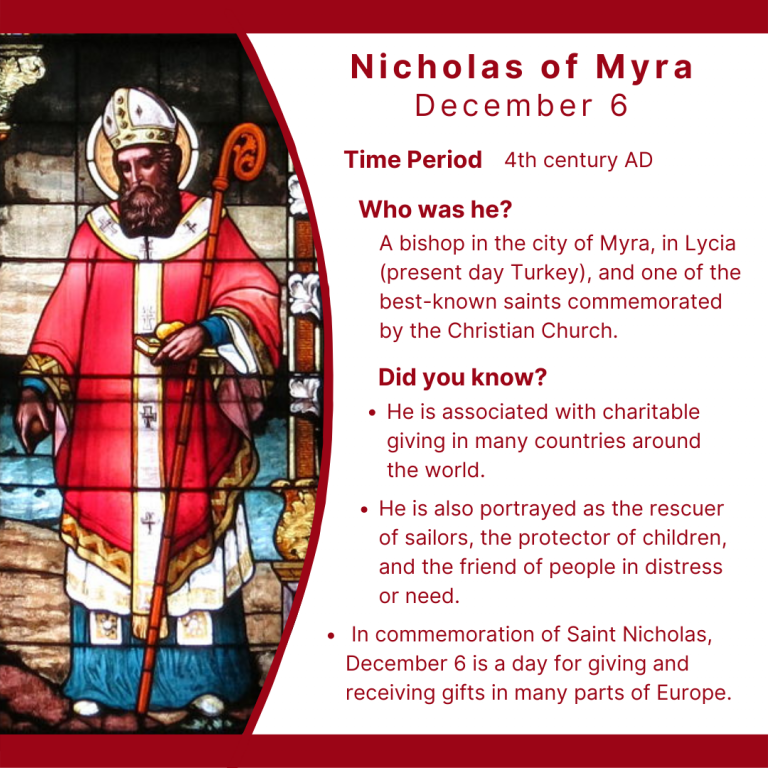The Gospel Still at Work in 2024

EDITOR’S NOTE: This article was originally published in 1993.
by Edwin Lehman
“What must we do to ensure that we will be an effective church in the year 2024?” I recently attended a meeting at which that question was the focus of six seriously offered responses.
The answers presented a wake-up call: the church needs to change from maintenance to mission, to break out of the isolation and become cross-cultural and intergenerational, to rethink the role of laity in the church, to streamline its structures, and be more visionary in its planning.
From the viewpoint of an ecclesiastical administrator, who deals with structures and systems in the church, I had to agree with everything that was said. But then as I attempted to answer the questions myself, different thoughts came to mind. “What must Lutheran Church–Canada do? What must my congregation do to be an effective church in the year 2024?”
Then I put away my bureaucratic binoculars and asked: “As a child of God, as a minister of the Gospel, how shall I respond to the question?” I concluded that:
1. The question was misleading. The word “effective” focuses on what we do to make it so. But the Gospel is always effective, because it is in the nature of the Gospel to be so.
2. Our work as a church—that is, as the visible church on earth—is not always effective. In fact, it is often ineffective. If we say that the mission of the church is to reach the world for Christ, it is obvious that we have been overwhelmingly ineffective, for in the two thousand years of trying we have not achieved our objective!
3. Unless our Lord returns first, the Church will certainly still be standing in the year 2024—if it holds to the doctrine of the Gospel: justification by grace through faith. We say this is the article by which the Church stands or falls, and usually take it to mean that we must hold on to justification or else the Church will fall. It also implies, of course, that if we do hold on to the doctrine of justification, the Church will stand. It is the Gospel which creates the Church, and the means by which the Holy Spirit sustains the Church.
We are part of that Church. We serve that Gospel. We belong to that Lord. That is all the assurance I need—for the future and for today.
I don’t know what the world will be like in 2024. The centre of Christianity may well have shifted from North America and Europe to Africa or China. It may well be that the golden age of technology will have disappeared, like the golden ages of antiquity. It may well be that such social upheavals will occur as to plunge us back into barbarism. It may well be that the moral standards of 2024, along with the level of civility, will clamour for Christians to be thrown back to the lions.
In short, the Church may well find itself back in the apostolic age, with all that implies. I don’t know if Lutheran Church–Canada will be around in 2024. I don’t know if my congregation will be around in 2024 or if there will even still be an organization that bears the name “Lutheran.” But unless the Lord returns by that time, I do know that the Gospel will still be at work. It will be effective—that is, it will be giving life to the dead and hope to the dying, as it has done in Russia and in China in our time and throughout the history of God’s dealings with the world.
So how shall I look at the future? With my bureaucratic binoculars I look at structures and organizations; with my pastoral bifocals I struggle with what is right versus what is practical. Far better that I reclaim the vision of that old man exiled to the rocky island of Patmos. As he looked out across the crystal sea, St. John knew that a tyrant was on the throne in Rome, butchering the Christians. But his vision was of things more distant, yet more real: of lamp stands and horsemen, of martyrs and dragons, of the holy city and the river of life.
When 2024 comes along, the Church will be even more battered and bruised, and thirty years older. But she will still be the bride of Christ—harassed and assaulted by the world, occasionally wandering down the dark alleys of prostitution and unfaithfulness—but in the eyes of Christ, a beautiful bride, waiting for her Bridegroom to receive her to Himself without blemish or spot.
 We are part of that Church. We serve that Gospel. We belong to that Lord.
We are part of that Church. We serve that Gospel. We belong to that Lord.
That is all the assurance I need—for the future and for today.
———————
Rev. Dr. Edwin Lehman was Lutheran Church–Canada’s first president following the transition to autonomy, serving from 1988-1996. This article, originally published in the December 1993 issue of The Canadian Lutheran, originally referred to the year 2023, not 2024.



